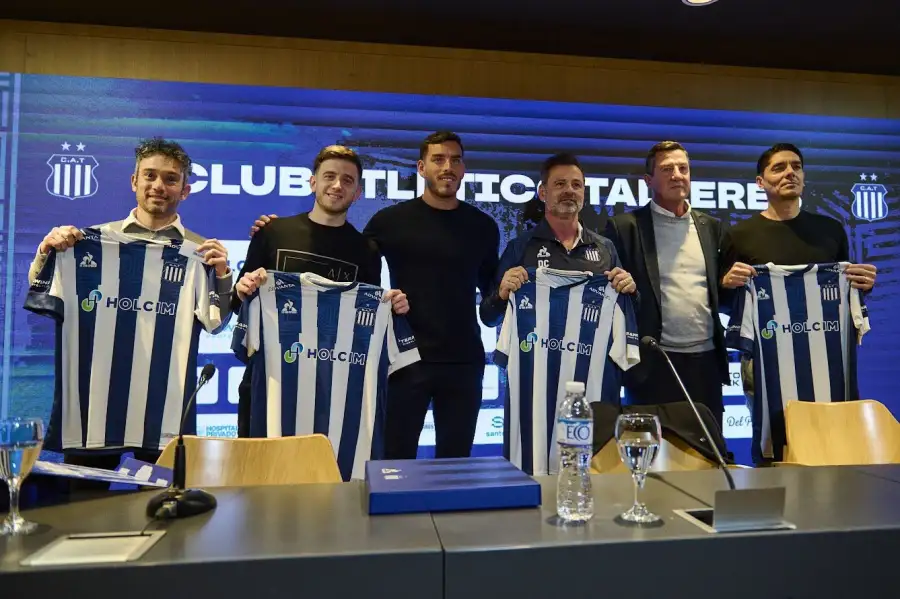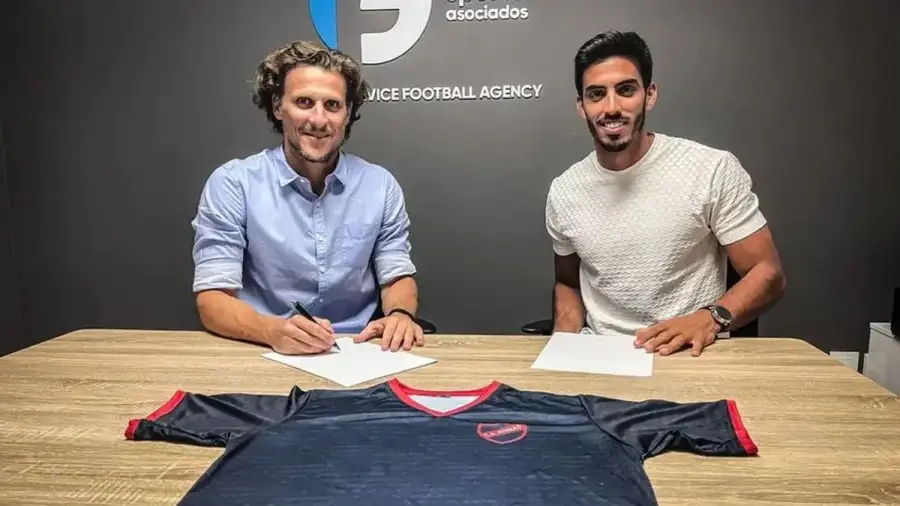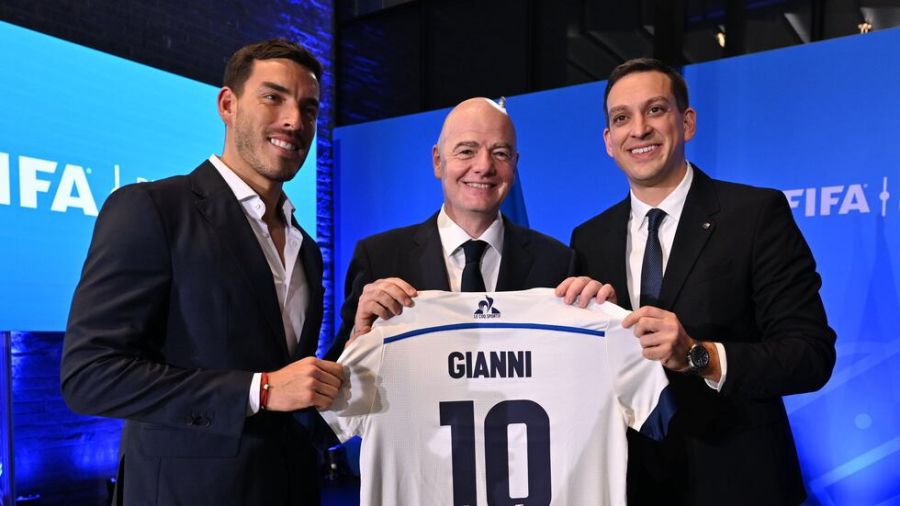Workshops: Fassi to the government, Fassi to power

"My three children helped me select some of the players for Talleres when my 'management', as they say there, began." On page 333 of the book 'Right of Reply' (Editorial Grijalbo, 2009), Carlos Ahumada Kurtz acknowledges the influence his offspring—then teenagers—had on his brief and forgettable tenure with the blue and white club.
In his account, the former owner of Ateliers, the corporation that licensed the 'T' football team between February 5, 2008, and September 8, 2009, admits that he delegated part of the scouting responsibility to his descendants (María Cecilia, Carlos Emiliano, and Ana Lucía), making them venture into a more realistic aspect of the famous game 'El Gran DT'.
Andrés Fassi, president of Talleres for a decade, always considered himself the polar opposite of Ahumada Kurtz, who treated him with disdain when the then-director of Grupo Pachuca attempted to approach him to negotiate a possible succession at the Jardín neighborhood institution.
The much-vaunted love for Talleres, the eventual management of Club León de México, and some common names among his henchmen appear to be mere coincidences between the former goalkeeper for All Boys and Deportivo Lasallano's youth teams and the former striker for América and Toros Neza's youth teams. Also the delegation of primary responsibilities to members of his inner circle? With some differences, this item links the two characters and seems to justify those who claim that extremes inevitably end up touching.

From arch to arch
Until last year, Sebastián Fassi dedicated himself to fulfilling his father's unfulfilled dream: to be a professional goalkeeper. A globetrotter in football (he played in Mexico, Ecuador, Costa Rica, Uruguay, and Spain), he became known in Córdoba for a post he published on social media during the 2022 World Cup in Qatar, featuring a photo of himself wearing the Aztec national team jersey and the caption, "There is only one motherland."
Months after hanging up his gloves at La Nucía, a team in the Spanish Second Division, the former goalkeeper trained at Pachuca was introduced last January as the club's vice president of sport. "He completed a sports master's degree with FIFA and is qualified for this new role. He will be a spare tire, a change agent, and someone with a vision for the future," enthused the T boss.
Pending a final ruling from the Court of Arbitration for Sport on the two-year suspension imposed by the AFA, Andrés Fassi's continued tenure as Talleres' top official is still undetermined, and a resignation in favor of a new successor has not been ruled out.
Sebastián Fassi had his baptism of fire on May 29th at the Amadeo Nuccetelli High Performance Sports Center, ready to welcome Diego Cocca, the new coach of the 'T', with the 5th vice president, José Ignacio Galloppa, completing the scene.
"This is a joint effort between the president and the sports department. These are not one-person decisions, but rather a consensus among all involved, to make the best decisions," explained the president's son about his new role, which includes seeking reinforcements in a key transfer market for the Albiazul, whose primary objective in the second half of the year will be to remain in the Professional League.
“It's a source of pride that my son can be permanently involved. It's a relief to have someone I trust so much in the day-to-day running of Talleres, as it allows me to fulfill so many other obligations,” stated Andrés Fassi, who balances his role as sports president of FC Juárez de México and the top management position at Talleres.

Family matter
From the beginning of his tenure at Talleres in December 2014, Andrés Fassi sought to reinforce the board of directors with people he trusted most. Among other names, the leader recruited his nephew Gerardo Moyano Cires (first vice president), his uncle Guillermo Carena (second vice president), his brother Juan Bautista Fassi (general secretary), and his cousin Ignacio Vélez Funes (legal and technical secretary). Halfway through his fifth year in office, in mid-2019, the president of the 'T' club doubled down and appointed another of his sons as sporting director.
Juan Pablo Fassi was no stranger to Talleres when he was appointed head of the brand-new Sports Development Department. The former Pachuca and Puebla midfielder had been helping with scouting and recruiting for players for some time.
A year later, Juan Pablo would return to Uruguayan football (he had hung up his boots playing for Fénix) as the visible face of Grupo Fassi, the SAD that granted a 25-year concession (with an option to renew for another quarter of a century) to the active football club Atenas de San Carlos.
Far from breaking the deadlock, the imminent reform of the statute—a long-standing demand of sectors not aligned with the ruling party—could strengthen the personalist model in place since 2014 at the Jardín neighborhood club.
"Beyond the fact that I could have had a career as a player, without being a star by any means, what I always wanted was to work alongside my father, learn from him and gain experience, so that in 10 years I could become the manager I want to be," he told the Montevideo newspaper El País in an interview that was part of a series of articles published under the title 'Young People in Power'.
That experience in Uruguay's Second Division, which included the loan signing of several Albiazul players (Renzo Paparelli, Cristian Ojeda, Matías Sosa, Catriel Sánchez, and Junior Arias) and the signing of goalkeeper Sebastián Fassi as the main reinforcement for the 2022 season, was cut short two and a half years into the season. During that time, seven coaches came through, including Diego Forlán, the 2010 World Cup Golden Ball winner in South Africa. "The Fassis suggested who to add and remove from the team," said 'Cachavacha', justifying his resignation.

At Talleres, Fassi is committed to long-term management. While the CAS ruling on the suspension imposed by the AFA, which jeopardizes his continued tenure, is still pending, the club's boss is moving forward with the draft statute reform that would allow for his re-re-reelection.
Until recently, Plan B was to bless Moyano Cires and distance himself from Barrio Jardín to try to focus on expanding investments from MountainStar Sports Group, the Mexican-American consortium that manages FC Juárez, to the Old Continent.
The invisibility of the first vice president and the growing exposure of the vice president of sports appear to be directing the alternative of abdication toward a new successor. Other tweaks to the statute, which currently requires proof of leadership experience to aspire to a future as a member of the leadership, would also point toward the new objective.
perfil.AR


%3Aformat(jpg)%3Aquality(99)%3Awatermark(f.elconfidencial.com%2Ffile%2Fbae%2Feea%2Ffde%2Fbaeeeafde1b3229287b0c008f7602058.png%2C0%2C275%2C1)%2Ff.elconfidencial.com%2Foriginal%2Fe49%2F4b6%2Fe66%2Fe494b6e66dabf02bdc3ff11e18ee954b.jpg&w=3840&q=100)


